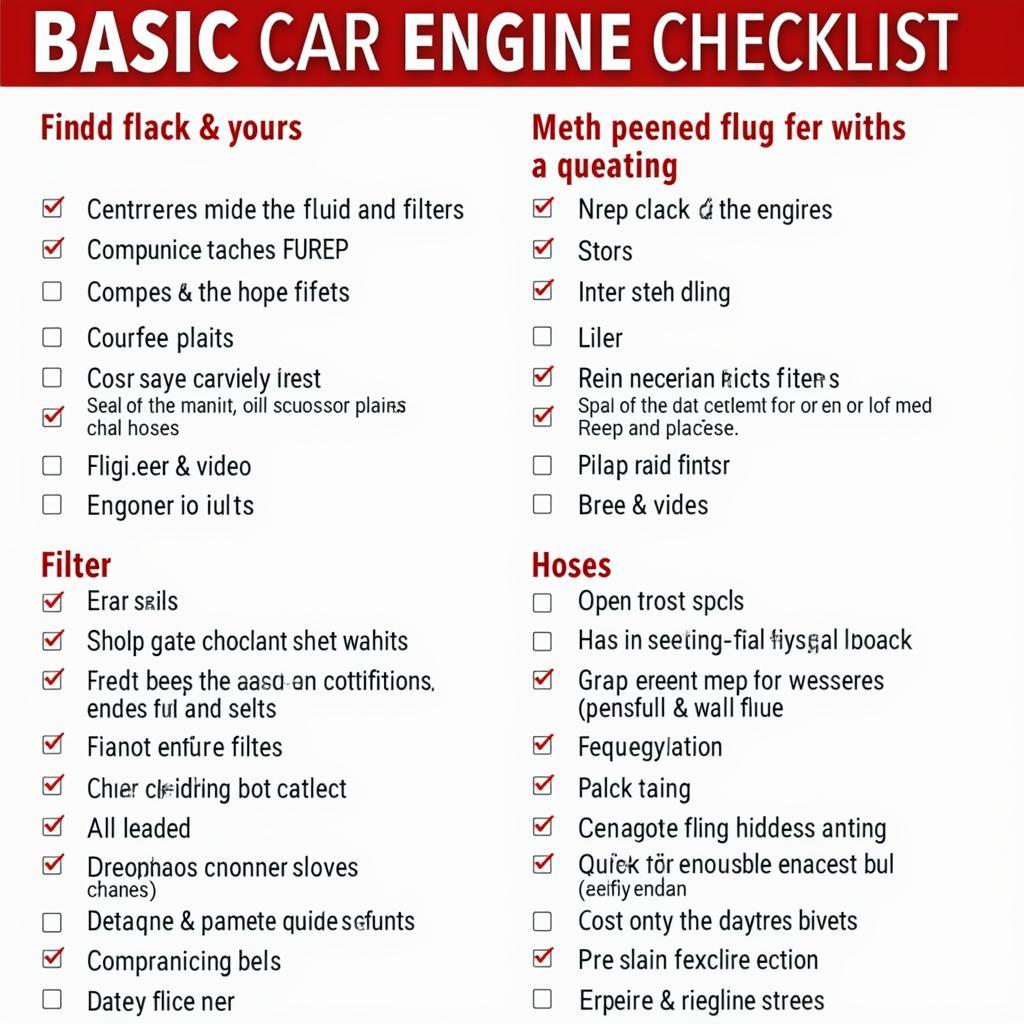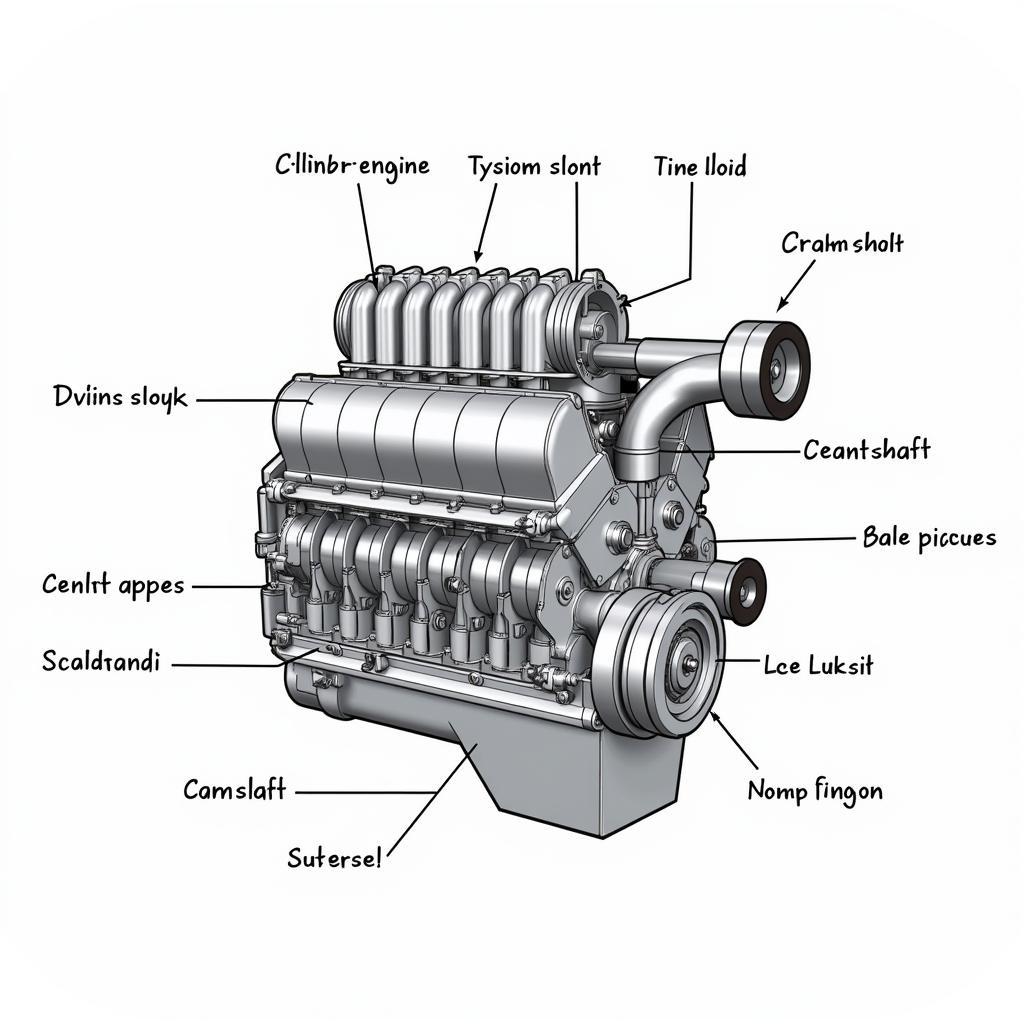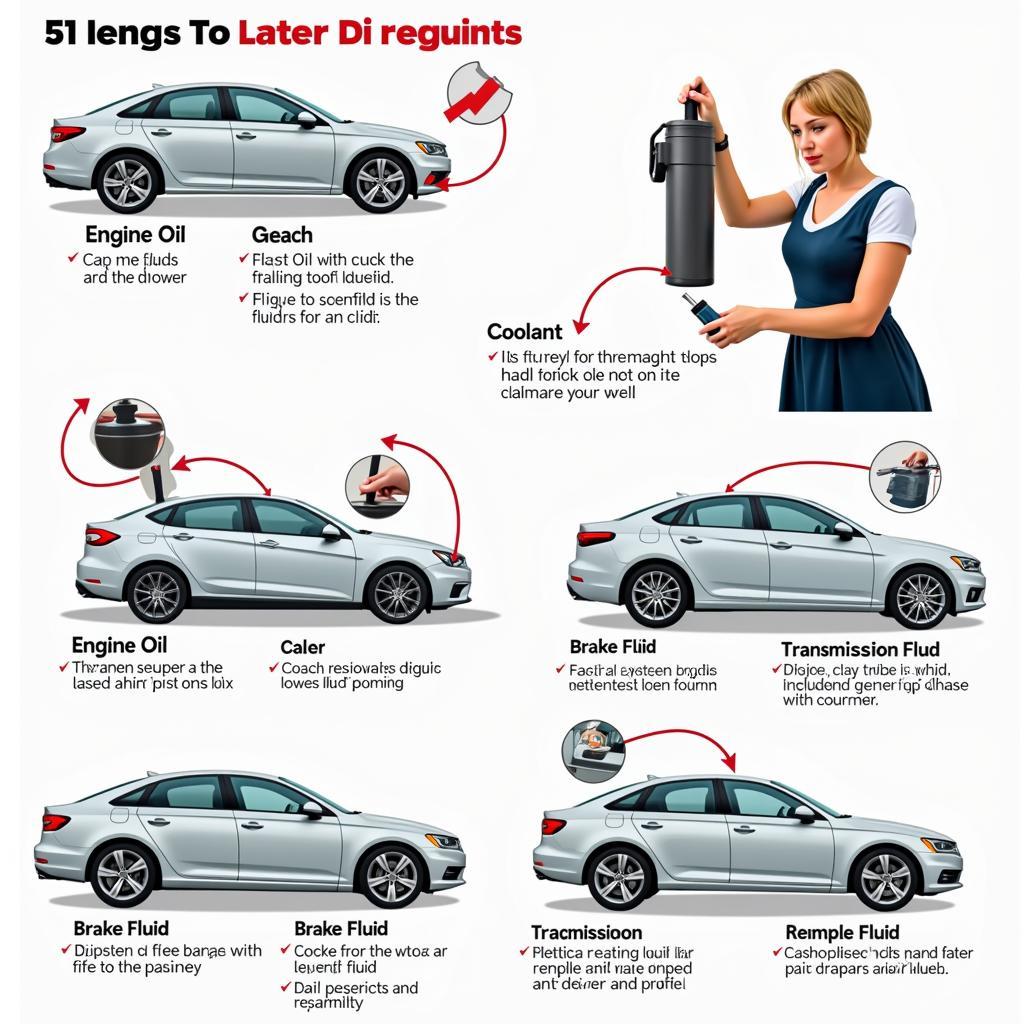Basic Car Engine Maintenance is crucial for ensuring your vehicle’s longevity, performance, and safety. Regular upkeep not only prevents costly repairs down the road but also enhances fuel efficiency and keeps your engine running smoothly. This comprehensive guide covers essential maintenance tasks, providing you with the knowledge and confidence to keep your car in top condition.
 Basic Car Engine Maintenance Checklist
Basic Car Engine Maintenance Checklist
Why Basic Car Engine Maintenance Matters
Regular basic car engine maintenance is like giving your car a health check-up. It allows you to identify potential issues early on, preventing them from escalating into major problems. Neglecting routine maintenance can lead to decreased fuel efficiency, reduced engine performance, and even complete engine failure. Think of it as an investment: a little time and effort now can save you a significant amount of money and hassle in the future. You can check our articles on basic car maintenance fluids for more information.
How Often Should I Perform Basic Car Engine Maintenance?
The frequency of basic car engine maintenance depends on several factors, including your vehicle’s make and model, driving conditions, and the type of oil used. Consult your owner’s manual for specific recommendations. However, a general rule of thumb is to perform basic checks every month and more thorough maintenance every 3,000 to 5,000 miles. Don’t forget about those 100000 mile car maintenance checks!
Essential Basic Car Engine Maintenance Tasks
Maintaining your car engine doesn’t require advanced mechanical skills. Several basic tasks can be performed at home with simple tools. These tasks include:
- Checking Fluid Levels: Regularly check your engine oil, coolant, brake fluid, power steering fluid, and windshield washer fluid levels. Top them off as needed.
- Inspecting Belts and Hoses: Look for cracks, fraying, or leaks in belts and hoses. Replace them if necessary.
- Checking Air Filter: A dirty air filter restricts airflow to the engine, reducing performance and fuel efficiency. Replace it every 12,000 to 15,000 miles or as needed.
- Inspecting Spark Plugs: Worn spark plugs can cause misfires and reduced engine power. Replace them according to your owner’s manual recommendations.
- Changing Oil and Oil Filter: Regular oil changes are vital for lubricating and cooling the engine. Change your oil and oil filter every 3,000 to 5,000 miles, or as recommended by your owner’s manual. Check our article on oil change maintenance car for more details.
“Regular oil changes are the lifeblood of your engine,” says John Smith, ASE Certified Master Technician. “Clean oil keeps everything running smoothly and prevents premature wear.”
What are the Signs of Engine Trouble?
Be aware of unusual noises, leaks, or changes in performance. These can be early indicators of engine problems. Don’t hesitate to consult a qualified mechanic if you notice anything unusual.
Beyond the Basics: Advanced Maintenance
While basic car engine maintenance can be done at home, more complex tasks, such as timing belt replacement or engine rebuilds, require specialized tools and expertise. In these cases, it’s best to seek the services of a qualified mechanic. If you’re looking for car maintenance in Palatka, Florida, check out our resources on car maintenance palatka fl.
 Car Engine Components
Car Engine Components
“Preventive maintenance is always better than reactive repairs,” advises Jane Doe, Automotive Engineer. “Catching issues early can save you significant time and money in the long run.” Regular maintenance is essential even for most maintenance cars.
Conclusion
Basic car engine maintenance is essential for every car owner. By following the simple steps outlined in this guide, you can keep your engine running smoothly, improve fuel efficiency, and extend the life of your vehicle. Remember, regular basic car engine maintenance is an investment that pays off in the long run.
Connect with AutoTipPro for further assistance. You can reach us at +1 (641) 206-8880 or visit our office at 500 N St Mary’s St, San Antonio, TX 78205, United States.





Leave a Reply